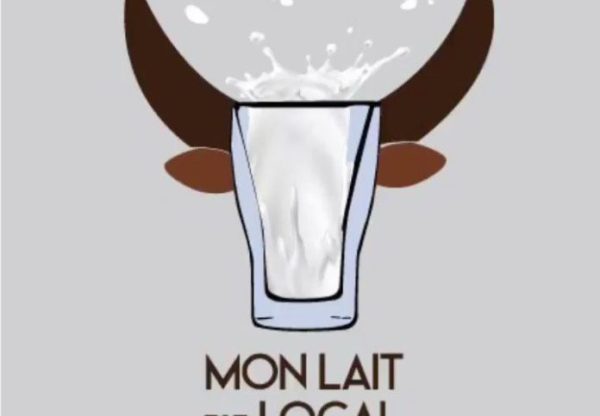The strategy to protect local milk in the region is still not funded by ECOWAS and its member states
On the occasion of the celebration of World Milk Day, marking the 3rd anniversary of the “My milk is local” initiative, more than 55 organizations of local milk producers from Burkina Faso, Mali, Niger, Senegal, Mauritania and Chad accompanied by a large coalition made up of regional farmer organizations, consumers, researchers, NGOs, mini-dairies and local industrialists have combined their voices to ask the heads of State of ECOWAS member countries to finance the national milk action plans arising from the regional strategy of the milk offensive and aimed at saving the local milk sector because it is about safeguarding the sector on which 48 million people depend. producers in the region.
For several years, European agro-industrialists have been invading the market in West Africa with powdered milk re-fattened with vegetable fat (MGV), in particular palm oil, and which is sold for up to 30, even 50% cheaper than locally produced milk. European agribusinesses take advantage of low tariffs (5%) to crush local competition and encourage local processors to use their products to the detriment of the health, the environment and the survival of millions of small producers. This unfair competition is suffocating milk producers in Africa who are already weakened by the climate crisis and the lack of food for their animals as well as by the economic impacts of COVID-19 following the temporary closures of markets and borders.
Madame HAMA Hadjatou KOÏTA, President of the KOSSAM NAÏ OOLI dairy in Dori, Burkina Faso: “From 1,200 liters of milk that my dairy processed and flowed per day, we fell between 200 and 300; we had to reduce our milk suppliers which numbered 45 and we also reduced the number of our collectors which went from 17 to 3. All the 13 dairies in the town of Dori suffered serious consequences. seriously impoverished ”.
Following the validation by ECOWAS of the regional strategy for the milk offensive and its first Priority Investment Program (PPI), the milk campaign supported the 15 ECOWAS countries + Mauritania and Chad in the development national milk action plans proposing concrete actions to save the local milk sector in each country. The financing of these milk action plans, however, remains a major concern for all Member States because the milk offensive has been approved by ECOWAS but not funded to date. “We call on our States to take concrete and urgent actions to save local milk, whose contribution to the national economy and our food and nutritional security is significant”, declares Mariam Ahmat, a consumer of local milk from Guera province in Chad. .
In Senegal, the milk action plan provides for an additional production of 132.3 million liters of local fresh milk by 2025, increasing national milk production from 264.6 million to 396.9 million liters. The increase in the share of milk from local herds in the overall volume of milk processed by the different categories of dairy industries will increase to at least 20%. All this will create 35,000 jobs mainly for women and young people.
In Mali, the plan provides for an increase in milk production and the level of local raw milk collection by 50%, allowing an increase in the consumption of local milk, a fiscal environment favorable to the promotion of local milk value chains, the creation of new jobs through the development of the various links in the milk value chain and better overall governance of the “local milk” value chain to strengthen its competitiveness.
Support measures are also planned to help producers cope with climate change and save local milk in Burkina Faso, Niger, Mali and Senegal.
“For our local milk to truly triumph, the resolve of our authorities who legislate and regulate is essential,” said DICKO Amadou Hamadoum, president of APESS. He also said “We expect from ECOWAS and its member states, rapid and effective measures for the financing and the implementation of the Priority Program of Investments for the promotion of local milk value chains through the development plans. national milk actions developed by all countries. Millions of people are affected. ”
The public is also invited to support the cause of local milk by signing the online Petition which has already mobilized more than 38,000 people with a target of 55,000 signatures and which calls on ECOWAS for concrete measures to save the local milk sector. in west Africa.



